Gwyneth Jones's Blog, page 3
June 24, 2018
A Very British Protest
 Not much of a march, really. St James's Square, to Parliament Square. How long's that going to take? Twenty minutes? Half an hour, tops. We assemble under the auspices of the Army and Navy Club. They've put their flag out for us, UNITATE FORTIOR; now that's nice. I admire the fine placard created by one of the scientists-against-Brexit contingent, and am allowed to take a photo (L). We wait. It's another of this summer's sunny but somehow lightless days. Not too warm, but the air is poor; occasionally, throughout this afternoon, actually stinking. We wait. The Lib Dems, similarly imprisoned in the other outlet from the Square, are getting restive (Peter and I are with the Greens). There are many homemade placards. There are also, as far as the eye can see in either direction along Pall Mall, hordes of people waving the blue flag with the yellow stars. Contrary to punditry, a large contingent, it looks maybe as much as 40-50%, seem to be over fifties. But younger people too, and teenagers, and families. What do we have in common? We are all able to figure out that two and two make four, and neither five nor three. We can see where the lady ended up, in the shell game, but we would never be such fools as to bet money on her position. And crucially, it seems from where I stand, we are good-natured.
Not much of a march, really. St James's Square, to Parliament Square. How long's that going to take? Twenty minutes? Half an hour, tops. We assemble under the auspices of the Army and Navy Club. They've put their flag out for us, UNITATE FORTIOR; now that's nice. I admire the fine placard created by one of the scientists-against-Brexit contingent, and am allowed to take a photo (L). We wait. It's another of this summer's sunny but somehow lightless days. Not too warm, but the air is poor; occasionally, throughout this afternoon, actually stinking. We wait. The Lib Dems, similarly imprisoned in the other outlet from the Square, are getting restive (Peter and I are with the Greens). There are many homemade placards. There are also, as far as the eye can see in either direction along Pall Mall, hordes of people waving the blue flag with the yellow stars. Contrary to punditry, a large contingent, it looks maybe as much as 40-50%, seem to be over fifties. But younger people too, and teenagers, and families. What do we have in common? We are all able to figure out that two and two make four, and neither five nor three. We can see where the lady ended up, in the shell game, but we would never be such fools as to bet money on her position. And crucially, it seems from where I stand, we are good-natured. Relatively privileged, of course, on the raw data. First since we can all afford to travel to the centre of London, and more importantly since we've escaped or resisted the mass-population dehumanising efforts of successive Tory governments. However far we are, individually, from power and influence, we still believe we are human, and citizens. We may be subaltern but we can speak.
I used to work in a jobcentre, many years ago. What goes on in those places these days sickens me.
There's a rumour that we're being held in these pens because the whole route is packed solid, the flood of numbers is so much higher than expected (the plan had been for a few hundreds, max?). Another rumour that we're being bunched together for a more striking effect. We wait, patient and good-tempered.
Peter & I wander about, cross Pall Mall. We eat our excellent tortilla sandwich, from the Spanish grocers at the bottom of Trafalgar Street,, and juicy late-season Valencia oranges, sitting on a kerbstone. We read placards (we have none of our own, or a flag). Sporadic roars rush through the crowd, like waves up a beach.

And we're off, for a short walk down to Trafalgar square, where the lions and Nelson are screened off for a rather late Eid celebration fete, and on into the land of war memorials, and pedestal-mounted "old blokes in 'ats on 'orses". The familiar, wailing cry of "OOOOh Jeremy Corbyn" causes puzzlement to be expressed in the ranks, and quickly morphs into the more appropriate "Where's Jeremy Corbyn?" But unfortunately the leader of the er, Opposition, so to speak, is a Brexiteer, for political reasons, and the lad is not for turning, no matter what the hell damage the break inflicts.
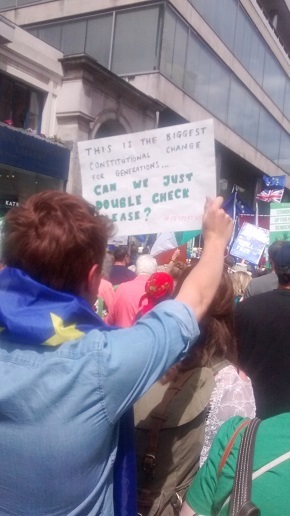 Rude words are bawled out, to anciently popular tunes. Placard messages favour gentleness, and good old British politeness . . . It's a meme, obviously, this rudeness and the good manners. Dogs trot to heel. Time, traditionally, for me to wonder why I'm here. Am I convinced @theresa_may is secretly a good guy, and I want her to know she has support for her cunning plan to sneak out of this daft impasse at the last possible moment, when her tormentors Johnson-Gove-Rees-Mogg et al are looking the other way? (No). Do I believe that the "Protest March", "raising awareness" tactic works? (It's been known to happen, but not around here). Am I here because it's just what I do; an unbreakable habit? Good point. It's true, I'm not one of those people who regards "the government" as something small and far away, that I can't possibly influence (like that innocent little cloudsy-wowdsy called "climate change"). I vote. I do more than vote. I believe I'm responsible for what the government does, and I communicate my concerns. It's called democracy. A pitifully imperfect union, like the EU itself, but, like the EU itself, worth hanging onto, because all the alternatives are much worse.
Rude words are bawled out, to anciently popular tunes. Placard messages favour gentleness, and good old British politeness . . . It's a meme, obviously, this rudeness and the good manners. Dogs trot to heel. Time, traditionally, for me to wonder why I'm here. Am I convinced @theresa_may is secretly a good guy, and I want her to know she has support for her cunning plan to sneak out of this daft impasse at the last possible moment, when her tormentors Johnson-Gove-Rees-Mogg et al are looking the other way? (No). Do I believe that the "Protest March", "raising awareness" tactic works? (It's been known to happen, but not around here). Am I here because it's just what I do; an unbreakable habit? Good point. It's true, I'm not one of those people who regards "the government" as something small and far away, that I can't possibly influence (like that innocent little cloudsy-wowdsy called "climate change"). I vote. I do more than vote. I believe I'm responsible for what the government does, and I communicate my concerns. It's called democracy. A pitifully imperfect union, like the EU itself, but, like the EU itself, worth hanging onto, because all the alternatives are much worse. I remember when I knew this was true (instead of just wanting to hold on to EU welfare and environment regulations, EU workers, global market share, science base, security & all that other trivial stuff the Brexiteers brush away). It was when Jo Cox was murdered. . .
I was told, for days, that I absolutely MUST NOT, shame on me, make the gross error of confusing the action of a poor crazed motiveless lunatic with the ruthless, xenophobic rhetoric of the Leave campaign. The murderer himself upset that apple-cart, when he came to court. But it made no difference. The Leave campaigners, Blue, Red or Purple, really did not care . . . That's when I knew.
Ah, we're here, so I can shut up, and the speeches can begin. Gina Miller kicks off. Sir Vince Cable goes astray, trying to
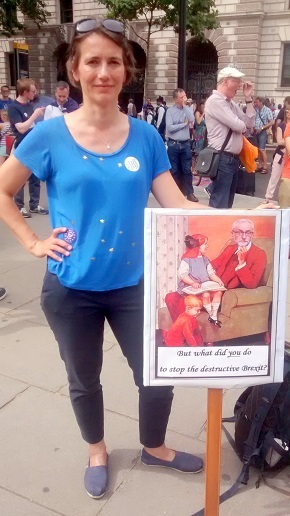 convince us of things we already know (or we wouldn't be here). Tony Robinson delights everybody by announcing that he has a cunning plan . . . Caroline Lucas channels Churchill, in a really stirring speech, laying down of the hard facts that we face and telling us what is to be done. The tower of Big Ben is wrapped like a package; like the Eid fair, and Ella is wondering what Jeremy Corbyn is going to tell the children, when they ask him . . . The trees around St Margaret's are in full leaf, and somewhat obscuring the screen, but we can see well enough, and the sound system is good.
convince us of things we already know (or we wouldn't be here). Tony Robinson delights everybody by announcing that he has a cunning plan . . . Caroline Lucas channels Churchill, in a really stirring speech, laying down of the hard facts that we face and telling us what is to be done. The tower of Big Ben is wrapped like a package; like the Eid fair, and Ella is wondering what Jeremy Corbyn is going to tell the children, when they ask him . . . The trees around St Margaret's are in full leaf, and somewhat obscuring the screen, but we can see well enough, and the sound system is good. It's over, for today. We tip our hats to the Suffragettes Scroll in Christchurch Gardens, and retire for a pint of local ale at the Greencoat Boy.
Published on June 24, 2018 06:31
June 6, 2018
The Season of Living Without Apples
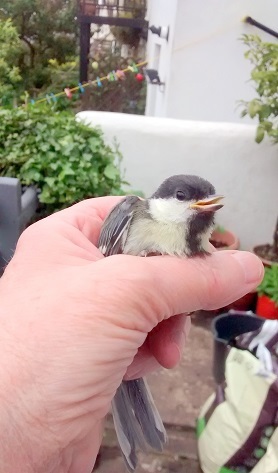 Guess, just guess, how I happen to be holding the great tit's child in my hand? You're absolutely right. Dear Tilly came bounding in and leapt onto the piano keys, jaws full of desperate flutter: look what I've brought you! So then I was bad:rescued the little bird from her soft mouth (she'd make a good gun dog), got her by the scruff, shouted at her and dumped her outdoors. The juvenile great tit was fine: bright-eyed, cheerful and brave . . . as you'd expect from the family's general demeanour, but cat was outdoors, bird indoors, exactly the opposite of what I needed. A useful moral lesson, more haste less speed, if only I could profit from my mistakes (never happens). I had to leave the infant in a box in my office & and cajole Tilly, while she sat on Claire and Steve's compost bin two fences away, very hurt and ostentatiously not looking my way. Anyway, it ended well. The infant flew away, soon as I was sure it was undamaged, and Tilly has forgiven me.
Guess, just guess, how I happen to be holding the great tit's child in my hand? You're absolutely right. Dear Tilly came bounding in and leapt onto the piano keys, jaws full of desperate flutter: look what I've brought you! So then I was bad:rescued the little bird from her soft mouth (she'd make a good gun dog), got her by the scruff, shouted at her and dumped her outdoors. The juvenile great tit was fine: bright-eyed, cheerful and brave . . . as you'd expect from the family's general demeanour, but cat was outdoors, bird indoors, exactly the opposite of what I needed. A useful moral lesson, more haste less speed, if only I could profit from my mistakes (never happens). I had to leave the infant in a box in my office & and cajole Tilly, while she sat on Claire and Steve's compost bin two fences away, very hurt and ostentatiously not looking my way. Anyway, it ended well. The infant flew away, soon as I was sure it was undamaged, and Tilly has forgiven me. It was a privilege to see a beautiful little bird so close up, anyway. Thank you, Tills.
& This is what a condemned elm tree looks like . . . The last of the mature elm trees on our road into town has got to go. It
 doesn't have the bug, it has fungal rot, and the Council has decided to remove it rather than risk having to pay up if it suddenly falls on someone's car or something. A reasonable decision or a detestable mindset? On this occasion, I could go either way. But the rise of UK local and national government's pogrom of the trees is certainly a detestable phenomenon, and inexplicable to me. Trees embellish the land (that's Chekov). They make our cities beautiful and liveable; they improve the air, they steady the traffic in towns, they improve human well-being, they're an economic asset. Destroying them, however, seems to be a vital element in UKGov's strategic planning:
doesn't have the bug, it has fungal rot, and the Council has decided to remove it rather than risk having to pay up if it suddenly falls on someone's car or something. A reasonable decision or a detestable mindset? On this occasion, I could go either way. But the rise of UK local and national government's pogrom of the trees is certainly a detestable phenomenon, and inexplicable to me. Trees embellish the land (that's Chekov). They make our cities beautiful and liveable; they improve the air, they steady the traffic in towns, they improve human well-being, they're an economic asset. Destroying them, however, seems to be a vital element in UKGov's strategic planning:https://www.theguardian.com/environment/2018/jan/11/priest-chain-tree-protest-euston-hs2-felling-plans-london
https://www.telegraph.co.uk/news/2018/04/29/millions-trees-mapped-drone-network-rail-felling-programme/
https://www.bbc.co.uk/news/uk-england-34749065
Along with destroying renewable energy, "building" new Nuclear Power Plants, at cataclysmic public expense (but thankfully without success); destroying lives and the economy by throwing out all known or suspected "immigrants", sucking up to Donald Trump and the DUP; etc etc.
But what do I know? Only that I'm certainly not getting more conservative as I grow old; except in the protect and survive sense of the term. Not getting any more resigned, either, for what it's worth. Still hauling in the opposite direction from this grand, global movement of history towards kleptocratic chaos, any small and decent way I can.
My Fracking Round Up (obligatory feature)
Oh, look, fracking in the UK is in parliament, how exciting!
https://drillordrop.com/2018/05/30/minister-quizzed-on-evidence-behind-fracking-proposals/#more-64264
Nah, not very exciting. "The Minister contradicted herself ". . . hardly even news. The message: "exploration has to go ahead" no matter what the evidence against these developments, could not be more clear. INEOS has acquired extrajudicial rights over nearly half the land area of the UK, and presumably "Jim Ratcliffe" (a general term, meaning the fracking industry profiteers) has paid for the package, under the table somewhere.
Latest news on the ground is that support grows (notably from individual investors, who don't live near well-pads, and are just hoping, like Lucky Jim, for a quick killing); and resistance grows. Outcomes (ie wells in production) there are as yet none.
https://www.newcivilengineer.com/latest/fracking-body-slams-claim-uk-needs-6000-shale-gas-wells/10030436.article
https://www.carbonbrief.org/qa-the-return-of-uk-fracking-and-what-it-could-mean-for-the-climate (Long, but comprehensive.)
Books
Eleanor Marx: A Life, Rachel Holmes
 Eleanor Marx, youngest of Karl Marx's three surviving children (others died in childhood and infancy), a political radical and Bohemian by birth and passion; active in the Paris Commune disaster as a teenager; ran away to Brighton to support herself at eighteen, as (unlike the rest of her family), it upset her to be leeching on the long-suffering Engels the whole time . . . What a grim world for women! So many pregnancies, so few surviving children, so many fine minds and talented individuals, crushed under the wheels of radical politics. Derisory numbers, of course, compared to "crushed under the wheels of privilege and rampant capitalism", but a shocking reminder that the women were always there. As gifted, as dedicated, as resolute, but doomed by biology, custom, and the complacency of the men they supported.
Eleanor Marx, youngest of Karl Marx's three surviving children (others died in childhood and infancy), a political radical and Bohemian by birth and passion; active in the Paris Commune disaster as a teenager; ran away to Brighton to support herself at eighteen, as (unlike the rest of her family), it upset her to be leeching on the long-suffering Engels the whole time . . . What a grim world for women! So many pregnancies, so few surviving children, so many fine minds and talented individuals, crushed under the wheels of radical politics. Derisory numbers, of course, compared to "crushed under the wheels of privilege and rampant capitalism", but a shocking reminder that the women were always there. As gifted, as dedicated, as resolute, but doomed by biology, custom, and the complacency of the men they supported. A big fat biography recommended by my friend Elly last year. I'm slowly getting through it, I'll be sorry when it's gone. It's very interesting, moving, and a real education; esp if you never knew the Paris Commune was a feminist issue, or if, like me you've read and loved the fictional versions of this story: eg Olive Schreiner's The Story of an African Farm,and -sublime to the ridiculous-but-enjoyable- Mrs Humphrey Ward (various); or "Baroness Von Hutten's" Pam; What Became Of Pam.
The Storyteller and His Three Daughters, Liam Hearn
 This book is just lovely. Set in 1884, in a Japan just opening up to "the West", but actually far more interested in its Korean adventures. Not as fantastical as the more famous Otori series (although there's a spooky strand), or its Shikanoko historical prequels, but a really delightful reading experience from start to finish.
This book is just lovely. Set in 1884, in a Japan just opening up to "the West", but actually far more interested in its Korean adventures. Not as fantastical as the more famous Otori series (although there's a spooky strand), or its Shikanoko historical prequels, but a really delightful reading experience from start to finish. Movies
The Breadwinner
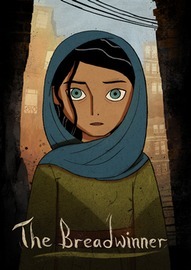 Animation, from the people who brought you Song Of The Sea; adapted from Deborah Ellis's highly praised young adult series of the same name. Lovely to look at, gripping and moving, don't miss, but like Song Of The Sea, a little bland at the centre. I think because of the timeless-fantasy frame, and the way it seems that nobody did it. Nobody is responsible. Women are courageous and cruelly subjugated, that's just the way things are. Men are vicious bullies, with one or two marvellous exceptions, "good princes" as it were, and that's just the way things are. Afghanistan is unfortunately placed on the global map, it's nobody's fault. Kabul never was a modern city, where fearless young women wore mini-skirts and went to university . . .
Animation, from the people who brought you Song Of The Sea; adapted from Deborah Ellis's highly praised young adult series of the same name. Lovely to look at, gripping and moving, don't miss, but like Song Of The Sea, a little bland at the centre. I think because of the timeless-fantasy frame, and the way it seems that nobody did it. Nobody is responsible. Women are courageous and cruelly subjugated, that's just the way things are. Men are vicious bullies, with one or two marvellous exceptions, "good princes" as it were, and that's just the way things are. Afghanistan is unfortunately placed on the global map, it's nobody's fault. Kabul never was a modern city, where fearless young women wore mini-skirts and went to university . . .This Is Congo dir. Daniel McCabe
 All the politics, sexual and global (Big Man culture/aka toxic masculinity is at the heart of what's wrong with Congo); but the fantasy comes with; this element supplied by the original Leopard-skin Pill-Box Hat Man (I mean Mobutu) and his wannabe- successors. You've seen Black Panther? Great movie, wasn't it? Lots of fun, and affirmative as all get out. Now see a different story about that fabled country in the middle of Africa, with its natural riches beyond belief, its super-power endowing mineral wealth,* and (oops, not featured in Black Panther) its dreadfully poor, articulate and courageous masses. This one hurts.
All the politics, sexual and global (Big Man culture/aka toxic masculinity is at the heart of what's wrong with Congo); but the fantasy comes with; this element supplied by the original Leopard-skin Pill-Box Hat Man (I mean Mobutu) and his wannabe- successors. You've seen Black Panther? Great movie, wasn't it? Lots of fun, and affirmative as all get out. Now see a different story about that fabled country in the middle of Africa, with its natural riches beyond belief, its super-power endowing mineral wealth,* and (oops, not featured in Black Panther) its dreadfully poor, articulate and courageous masses. This one hurts. Try this link for more details and a trailer: http://www.ramascreen.com/this-is-congo-and-these-are-its-poster-and-trailer/
*Literally, super-power endowing. Did you know it was Congolese Uranium, rich and yellow, that fueled the bombs that fell on Hiroshima?
Targeted Advertising
 Would you like to go to Iceland? The large chilly island, I mean? With the hole that leads to the centre of the earth. I'd love to go to Iceland, and maybe I will, one fine summer. Meanwhile, an NZ pro-review site spotted the Iceland reference (it's the drained magma chamber you can visit) in my Proof of Concept Acknowledgements Page and asked me to post their 100 best things to do in Iceland feature. It's a good list, so I will:
Would you like to go to Iceland? The large chilly island, I mean? With the hole that leads to the centre of the earth. I'd love to go to Iceland, and maybe I will, one fine summer. Meanwhile, an NZ pro-review site spotted the Iceland reference (it's the drained magma chamber you can visit) in my Proof of Concept Acknowledgements Page and asked me to post their 100 best things to do in Iceland feature. It's a good list, so I will:https://www.jenreviews.com/best-things-to-do-in-iceland/
Living Without Apples?
It's June. The earliest of English apples will turn up soon, and I can wait. I'll stretch a point for some EU fruit and veg, but only idiots buy "organic" to feel good, if the product's flown in from Argentina. More poetically, you can take the title of this purely cultural and a-political post as a generally refusnik statement, and a plug for my secret weapon: You are not trapped helplessly in your "we've got planets to burn" lifestyle choices. You can do without stuff, lots of stuff. It's easy, once you try . . .
Published on June 06, 2018 03:19
Living Without Apples
 Guess, just guess, how I happen to be holding the great tit's child in my hand? You're absolutely right. Dear Tilly came bounding in and leapt onto the piano keys, jaws full of desperate flutter: look what I've brought you! So then I was bad:rescued the little bird from her soft mouth (she'd make a good gun dog), got her by the scruff, shouted at her and dumped her outdoors. The juvenile great tit was fine: bright-eyed, cheerful and brave . . . as you'd expect from the family's general demeanour, but cat was outdoors, bird indoors, exactly the opposite of what I needed. A useful moral lesson, more haste less speed, if only I could profit from my mistakes (never happens). I had to leave the infant in a box in my office & and cajole Tilly, while she sat on Claire and Steve's compost bin two fences away, very hurt and ostentatiously not looking my way. Anyway, it ended well. The infant flew away, soon as I was sure it was undamaged, and Tilly has forgiven me.
Guess, just guess, how I happen to be holding the great tit's child in my hand? You're absolutely right. Dear Tilly came bounding in and leapt onto the piano keys, jaws full of desperate flutter: look what I've brought you! So then I was bad:rescued the little bird from her soft mouth (she'd make a good gun dog), got her by the scruff, shouted at her and dumped her outdoors. The juvenile great tit was fine: bright-eyed, cheerful and brave . . . as you'd expect from the family's general demeanour, but cat was outdoors, bird indoors, exactly the opposite of what I needed. A useful moral lesson, more haste less speed, if only I could profit from my mistakes (never happens). I had to leave the infant in a box in my office & and cajole Tilly, while she sat on Claire and Steve's compost bin two fences away, very hurt and ostentatiously not looking my way. Anyway, it ended well. The infant flew away, soon as I was sure it was undamaged, and Tilly has forgiven me. It was a privilege to see a beautiful little bird so close up, anyway. Thank you, Tills.
& This is what a condemned elm tree looks like . . . The last of the mature elm trees on the Upper Lewes Road has got to go. It
 doesn't have the bug, it has fungal rot, and the Council has decided to remove it rather than risk having to pay up if it suddenly falls on someone's car or something. A reasonable decision or a detestable mindset? On this occasion, I could go either way. But the rise of UK local and national government's pogrom of the trees is certainly a detestable phenomenon, and inexplicable to me. Trees embellish the land (that's Chekov). They make our cities beautiful and liveable; they improve the air, they steady the traffic in towns, they improve human well-being, they're an economic asset. Destroying them, however, seems to be a vital element in UKGov's strategic planning:
doesn't have the bug, it has fungal rot, and the Council has decided to remove it rather than risk having to pay up if it suddenly falls on someone's car or something. A reasonable decision or a detestable mindset? On this occasion, I could go either way. But the rise of UK local and national government's pogrom of the trees is certainly a detestable phenomenon, and inexplicable to me. Trees embellish the land (that's Chekov). They make our cities beautiful and liveable; they improve the air, they steady the traffic in towns, they improve human well-being, they're an economic asset. Destroying them, however, seems to be a vital element in UKGov's strategic planning:https://www.theguardian.com/environment/2018/jan/11/priest-chain-tree-protest-euston-hs2-felling-plans-london
https://www.telegraph.co.uk/news/2018/04/29/millions-trees-mapped-drone-network-rail-felling-programme/
https://www.bbc.co.uk/news/uk-england-34749065
Along with destroying renewable energy, "building" new Nuclear Power Plants, at cataclysmic public expense (but thankfully without success); destroying lives and the economy by throwing out all known or suspected "immigrants", sucking up to Donald Trump and the DUP; etc etc.
But what do I know? Only that I'm certainly not getting more conservative as I grow old. Except in the protect and survive sense of the term. Not getting any more resigned, either. Just annoyed that all I can do is haul in the opposite direction, on a whole raft of issues, any small and decent way I can: no reasoned argument possible.
My Fracking Round Up
Oh, look, fracking in the UK is in parliament, how exciting!
https://drillordrop.com/2018/05/30/minister-quizzed-on-evidence-behind-fracking-proposals/#more-64264
Nah, not very exciting. "The Minister contradicted herself ". . . hardly even news. The message: "exploration has to go ahead" no matter what the evidence against these developments, could not be more clear. INEOS has acquired extrajudicial rights over nearly half the land area of the UK, and presumably "Jim Ratcliffe" (a general term, meaning the fracking industry profiteers) has paid for the package, under the table somewhere.
Latest news on the ground is that support grows (notably from individual investors, who don't live near well-pads, and are just hoping, like Lucky Jim, for a quick killing); and resistance grows. Outcomes (ie wells in production) there are as yet none.
https://www.newcivilengineer.com/latest/fracking-body-slams-claim-uk-needs-6000-shale-gas-wells/10030436.article
https://www.carbonbrief.org/qa-the-return-of-uk-fracking-and-what-it-could-mean-for-the-climate (Long, but comprehensive.)
Books
Eleanor Marx: A Life, Rachel Holmes
Eleanor Marx, youngest of Karl Marx's three surviving children (others died in childhood and infancy), a political radical and Bohemian by birth and passion; active in the Paris Commune disaster as a teenager; ran away to Brighton to support herself at eighteen, as (unlike the rest of her family), it upset her to be leeching on the long-suffering Engels the whole time . . . What a grim world for women! So many pregnancies, so few surviving children, so many fine minds and talented individuals, crushed under the wheels of radical politics. Derisory numbers, of course, compared to "crushed under the wheels of privilege and rampant capitalism", but a shocking reminder that the women were always there. As gifted, as dedicated, as resolute, but doomed by biology, custom, and the complacency of the men they supported.
A big fat biography recommended by my friend Elly last year. I'm slowly getting through it, I'll be sorry when it's gone. It's very interesting, moving, and a real education; esp if, like me, you've read the fictional versions of this story: eg Olive Schreiner's The Story of an African Farm,(sublime to the ridiculous-but-enjoyable) Mrs Humphrey Ward (various); or "Baroness Von Hutten's" Pam; What Became Of Pam.
The Storyteller and His Three Daughters, Liam Hearn
This book is just lovely. Set in 1884, in a Japan just opening up to "the West", but actually far more interested in its Korean adventures. Not as fantastical as the more famous Otori series (although there's a spooky strand), or its Shikanado historical prequels, but a really delightful reading experience from start to finish.
Published on June 06, 2018 03:19
March 9, 2018
Onward to even stormier seas
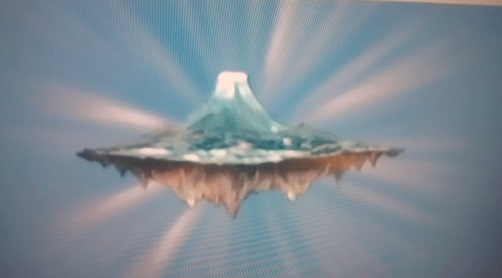 The end of an era: I finally finished Okami (the original, not the upcoming HD version) last Wednesday night, after more than two years of playing (off & on), and I'd I wouldn't like to say how many, many absorbing hours. Goodbye, Amaterasu, wolf-mother to us all. I hope one day we will meet again. I believe there's never been another game so beautiful, or (at times) so frustrating.
The end of an era: I finally finished Okami (the original, not the upcoming HD version) last Wednesday night, after more than two years of playing (off & on), and I'd I wouldn't like to say how many, many absorbing hours. Goodbye, Amaterasu, wolf-mother to us all. I hope one day we will meet again. I believe there's never been another game so beautiful, or (at times) so frustrating.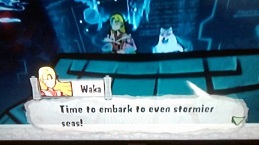
Hunger for Freedom
545 people joined the fasting for freedom Women's Day action last week. I have to admit I didn't feel a thing, since we were only fasting from food; 24 hours without water would have been tough. It was a gesture, a statement and a commitment. Meanwhile the women on hunger strike at Yarl's Wood, where they are confined indefinitely, under prison conditions, without trial or charge, began fasting on 21st February, and they're still going. Did you know that most of the detainees rounded up and dumped in Home Office concentration camps are eventually released back into the community? (In other words, there were no grounds for deportation). Did you know that if HMG does eventually stick you on a plane, it's without notice, and always at the weekend, so you can't get hold of a lawyer? And by the way, whoever may be reading this, if ever you are tempted to decide that Theresa May is okay really, doing her best, just a little clueless: forget Brexit. Remember that this whole "hostile environment" system: the crazy rounding up of people who have lived and worked in the UK for decades, the inhuman treatment of torture survivors, was her own special bright idea.
If you're going to check just one of the links below, make it the first.
http://www.biduk.org/
https://detainedvoices.com/2018/02/25/the-strikers-demands/
https://action.freedomfromtorture.org/stop-closed-door-policy-making-immigration-detention?utm_campaign=torturedefinitionaction&utm_source=twshare
http://detentionforum.org.uk/
http://detentionaction.org.uk/
Compulsory Reading
For the record, I thought The Shape Of Water was soft-centred & not a patch on eg Del Toro's The Devil's Backbone ; and that Three Billboards was brilliant, tragic, but too uncompromising and ironic for the US audience. But don't ask me about vital #MeToo gown decisions, & all that. I wasn't paying attention. In any spare time I've found, I've been busy catching up with the serious books I got for Christmas, and for my birthday. Though it may have seemed to me that these gifts were selected on the Velveteen Rabbit principle (see note 1, below . . . ) I have been seriously getting through them, one by one.
Middlesex
A vintage (2002) Pulitzer prize winner about gender diversity. The grandchild of an incestuous immigrant couple from Asia Minor, Calliope --in fact a normal XY male, just terminally under-dosed with testosterone in early development-- is brought up as a girl, in a close-knit Greek immigrant community in suburban Detroit. Eventually her parents take her to a trendy sex-doctor, because she has no breasts and no periods (but a rather conspicuous external clitoris). The doctor decides that as she's been brought up female, she'll be happier staying that way. But Cal/Calliope, by this stage awoken to his essential (and let's face it, far preferable) inner masculinity, disagrees and runs away. He takes refuge with some cool, weird intersexuals at a peepshow, and finally "comes out" as a slim, slightly-built, American Psycho style dandy, with a penchant for tiny little cigars. It may have passed in 2002, but this story has nothing to do with gender diversity. Nor intersexuality, really. It's entirely about a world Eugenides clearly adores: the relentlessly greedy, conservative and traditional, masculinity-ordered, consumerism obsessed US of the Fifties, Sixties and Seventies. I think I'll give the more famous The Virgin Suicides a miss. I know I will never be able to share this author's point of view.
Palace Walk
Even more vintage, the first episode of a family trilogy about Egypt, set in British-ruled Cairo, by Naguib Mafouz, a Nobel Prize for Literature winner, 1956. Like a big fat novel by Dickens, Trollope, or George Meredith, but less coy than any of those socially acceptable C19 chroniclers (Mafouz claims Flaubert as an influence) this is Victorian patriarchy with the wraps off. The vices of the central paterfamilias are right out in the open, graphic, utterly shameless and invincibly protected by his ordinary and monumental hypocrisy. His wife, devout, intelligent and gentle (and clearly Mafouz's favourite character) hasn't left the house since she married him at fourteen, and adores him in all humility. His daughters are obsessed with their marriage prospects (falling in love with a boy only glimpsed through the lattice of your balcony is no fairytale absurdity in this society: just very dangerous); his youngest son is obsessed with the British soldiers. By the end of this episode, even the father understands that the world is about to change beyond imagining . . . The story starts in 1917, and concludes (apparently) with the revolution of 1952. Full of self-knowledge and humanity, which is just what Eugenides lacks. I was fascinated, and yet I don't think I'll read any more of the story.
Enlightenment Now
Steven Pinker, 2018. A big fat book by an erstwhile cognitive psychologist and popular science writer, designed to bring comfort to the one class of people in global society who you'd think have no need for more of that commodity. For the record, it's certainly true that by many measures life on earth, right now, is a lot better than it was, for millions and millions of human beings, and the fact that we can know so much, with so little effort, about the famines, the war zones and the disasters, means the bad drowns out the good. That said "Enlightenment Now" is the work of a rather shallow and dishonest thinker, who seems to believe that climate change is a trivial problem, and "the environment" is simply a five star park he can visit (by jet plane, first class), and enjoy, from time to time. (Of course he's not alone in this one). Plus "science" is a fixed body of knowledge, established er, around the same time as that famous "Invisible Hand", that can be added to, but can't change. Gun regulation doesn't work, and has been proven to have no better results than the officious controls the anti-gun lobby tries to impose; the religion called "humanism" (a secular form of Christianity, invented in the C19- C20, by people uneasy with the envelope of miracle, but devoted to the rest of the creed) is, alone of all the sects, immune to misuse. To sum up, and most reassuringly, simply feeding the staggering appetite of the one per cent is bound to save the world. I feel impelled to add that I got sick of being continually addressed as a special interest group called "women and minorities", so I may have missed the good bits.
Black Lamb, Grey Falcon
Rebecca West,1941. This should really be called compulsive reading, not compulsory. I only meant to read the Prologue, to find out what she meant by her pronouncement on man's besetting sin of lunacy vs woman's besetting sin of idiocy. But I couldn't stop. The Black Lamb is Death, the Grey Falcon is Resurrection. Rebecca West (Cecily Fairfield)'s magnum opus is both one of the greatest travel books ever written (I love travel books), and a monumental history of the lands, fatally trapped between world-dominating civilisations, that later became our Yugoslavia, the beautiful and doomed. The history is absorbing, "Ruritanian"; often unlikely beyond belief, and absolutely fascinating, if you're taken that way. The beauty of cities like Sarajevo; the fabulous religious art in remote monasteries, deep in the flowery mountains is . . . mainly not there anymore, I'm afraid. Not a good place, in any of its manifestations, Jewish, Christian or Muslim, to be born a woman. But West (she took her pen name from an Ibsen play, a character of indomitable will) is ambiguous about that issue. She hates cruelty, but she worships strength and seems to regard being born female as the entry level of a strenuous and demanding competitive sport. At which she excels, naturally. All through the story, her admiration and respect are reserved for those women, either in the harem, or as tortured peasant wives, who do not rebel, but are hard enough to take whatever "being female" deals out.
Definitely not a cheesy rabbit.
In other news, the first clump of spawn has appeared and been removed (mostly) to quarantine until proved viable. There's a queue of clasping frog couples lined up behind the greenhouse, threatening us with far more spawn than we can handle; a small newt has also been seen in the wildlife pond (quite possibly one of the efts I reared in 2016; now full grown but still my newt). And a magpie couple has decided to nest in the cypress tree, which since they are as clever as most humans, is an unprecedented compliment to our restaurant service. The songbird clientele probably not too thrilled, however.
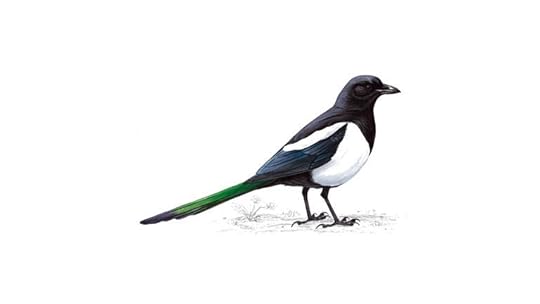
note 1: See Friends Episode 4:6 The birthday present too thoughtful to have come from Joey.
Published on March 09, 2018 06:59
February 13, 2018
Welcome to 2018: "short periods of loneliness or transient melancholy"
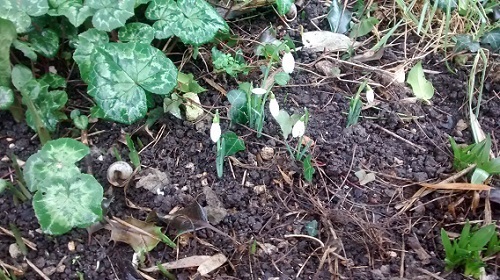 The lovely quote above is from a Chinese horoscope site, heralding the new year of the Earth Dog that starts on Friday (16th Feb). I'll certainly be watching out for those poetic moods and, between my sighs, finding more or less plausible reasons to be hopeful. We had greenfinches on our bird feeding station for the RSPB count, first time in years. Likewise dunnocks, and the male blackcap, besides plenty of the more regular customers. The frogs are back in the fish pond, and the snowdrops, though few of mine survived the ravages of those evil squirrels, have been unusually wonderful in King Death's Garden . . .
The lovely quote above is from a Chinese horoscope site, heralding the new year of the Earth Dog that starts on Friday (16th Feb). I'll certainly be watching out for those poetic moods and, between my sighs, finding more or less plausible reasons to be hopeful. We had greenfinches on our bird feeding station for the RSPB count, first time in years. Likewise dunnocks, and the male blackcap, besides plenty of the more regular customers. The frogs are back in the fish pond, and the snowdrops, though few of mine survived the ravages of those evil squirrels, have been unusually wonderful in King Death's Garden . . .New Year's Books (the Japanese Connection)
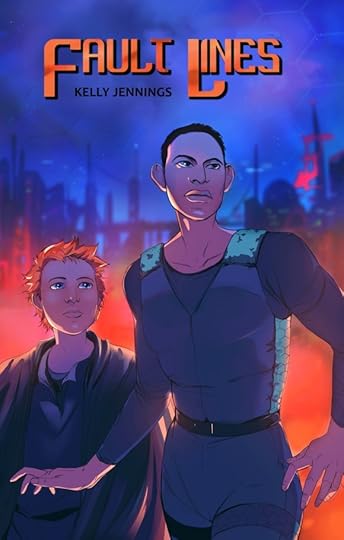 Kelly Jennings' Velocity Wrachant novel for Candlemark & Gleam isn't out until June, so I won't be letting slip any spoilers. I'll just say Kelly has considerably extended her reach in this "non-clichéd space opera". Previously she's concentrated on space opera's underclasses, too often only represented in faceless CGI ranks, or hauled in briefly (eg, I'm afraid, The Last Jedi) for cameo cuteness. She's co-edited an anthology of sf working-stiff protagonists (
Menial: Skilled Labor in Science Fiction
) and published a novel, Broken Slate, the grimly engrossing story about a young man from a merchant (space) shipping family sold into the most brutal slavery . . . Fault Lines takes a less punishing approach to the same issues, featuring Velocity herself and a young girl called "Bronte" as ex-privileged fugitives from the galaxy's Japanese-ish ruling class, called the Combine. When is a person not a person? The Combine's view on that issue is disquieting, and their gene-driven caste system provides some shock moments, but the warmth of Velocity's polyamorous "self-chosen family" is a welcome background. There are intriguing (and reassuring: the story isn't one you'd like to see done and dusted in the first volume) hints of more to come, in the subtle role played by "the Dagan". He's an artificial being from the other power in this Cold War set-up; who serves Velocity, as she comes to realise, very much on his own terms.
Kelly Jennings' Velocity Wrachant novel for Candlemark & Gleam isn't out until June, so I won't be letting slip any spoilers. I'll just say Kelly has considerably extended her reach in this "non-clichéd space opera". Previously she's concentrated on space opera's underclasses, too often only represented in faceless CGI ranks, or hauled in briefly (eg, I'm afraid, The Last Jedi) for cameo cuteness. She's co-edited an anthology of sf working-stiff protagonists (
Menial: Skilled Labor in Science Fiction
) and published a novel, Broken Slate, the grimly engrossing story about a young man from a merchant (space) shipping family sold into the most brutal slavery . . . Fault Lines takes a less punishing approach to the same issues, featuring Velocity herself and a young girl called "Bronte" as ex-privileged fugitives from the galaxy's Japanese-ish ruling class, called the Combine. When is a person not a person? The Combine's view on that issue is disquieting, and their gene-driven caste system provides some shock moments, but the warmth of Velocity's polyamorous "self-chosen family" is a welcome background. There are intriguing (and reassuring: the story isn't one you'd like to see done and dusted in the first volume) hints of more to come, in the subtle role played by "the Dagan". He's an artificial being from the other power in this Cold War set-up; who serves Velocity, as she comes to realise, very much on his own terms. Kelly has been compared with C.J Cherryh, and I think deservedly. Fault Lines isn't burdened with the awful angst of Cherryh's greatest novel, Cyteen, but it has the same intensity and conviction.
Meanwhile, the Tale Of Genji, which I am reading for maybe the tenth or the twelfth time, is drawing to a close again. The noble-spirited & melancholy Oigimi (Elder sister), is dead, having stubbornly refused poetic Kaoru's advances to the last, & her younger sister,
 Nakanokimi is facing the realities of a subordinate marriage to the court's darling, Prince Niou. We're moving into the endgame. I love the final section of this (more than a) thousand year old novel. Murasaki has observed the conventions of court fiction for so long, waving a magic wand of sighs, poetic allusions, exquisite robes, bird-song and dew and perfume, over the marriage-by-rape convention of her enclosed, palace society; always taking the male point of view (which her female audience also preferred, to avoid the humiliating reality. However boldly they played their sexual cards in reality they had no control; no control at all). With Oigimi, suddenly she reverses the tapestry, and its thrilling. Though tough on the two sisters.
Nakanokimi is facing the realities of a subordinate marriage to the court's darling, Prince Niou. We're moving into the endgame. I love the final section of this (more than a) thousand year old novel. Murasaki has observed the conventions of court fiction for so long, waving a magic wand of sighs, poetic allusions, exquisite robes, bird-song and dew and perfume, over the marriage-by-rape convention of her enclosed, palace society; always taking the male point of view (which her female audience also preferred, to avoid the humiliating reality. However boldly they played their sexual cards in reality they had no control; no control at all). With Oigimi, suddenly she reverses the tapestry, and its thrilling. Though tough on the two sisters.& continuing the Japanese theme in library books, I'm about to start reading The Emperor of the Eight Islands, "Lian Hearn's" latest fantasy, a two-parter. Again (having read the back of the jacket, besides the Otori) I know the author will take the male point of view. But she'll be subtle about it; the women will be fierce as well as subordinate, and there'll be plenty of bizarre magic. Looking forward to it!
My Fracking Round Up
It already seems forever since I caught some kind of knockdown flu back in January, & had to enlist Peter as my deputy for the planning committee meeting, where, despite public outcry, West Sussex County Council unanimously approved Cuadrilla's application to renew flow testing at Balcombe. It was a low point, like the end of a period of remission, though we'd expected nothing else. A lot has changed since then.
Are we finally winning the battle against the fracking industry in the UK? No. The threat is still active, down here in the Weald, and everywhere else the industry has managed to get a foot in the door; including within and under our National Parks. The clear message from science and the politics is that
a) the fossil fuels have to stay in the ground,
b) the people have spoken and rejected this reckless, stupid industry, and
c) this raggedy offshore island is extremely well placed to benefit from investment in renewables.
But the at least equally clear message is that dirty money speaks louder than science to our friends in the Tory government; much louder than democracy, and besides they all hate their children.
On the other hand, Third Energy's High Volume Hydraulic Fracking operation, which seemed a dead cert back then, has not yet commenced, and apparently Greg Clark's financial resilience test isn't going well for them.
https://www.theguardian.com/environment/2018/feb/10/carillion-links-north-yorkshire-fracking-third-energy
The latest now traditional "leaked unpublished report" seems to show that UK gov has revised its hopes for the industry in a drastically downward direction:
https://drillordrop.com/2018/02/11/unpublished-government-report-scales-back-predictions-on-uk-fracking/#more-60841
& the various frackers' (admittedly always terminally daft) attempt to secure "Social Licence" has been declared DOA
Another year, and it's not beginning badly. The battle for democracy is not quite lost. All credit to the protectors, who just keep on
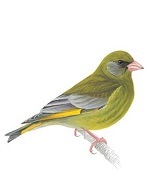 keeping on, and derision to the investors, however small, however mighty. Let's leave it there.
keeping on, and derision to the investors, however small, however mighty. Let's leave it there.
Published on February 13, 2018 03:07
February 12, 2018
UB#3: EUrovision Flash Mob, Proof Of Concept, & Movies
 Last week they held the UK (ha!) Eurovision shortlist event in Brighton Dome. A modest EUrovision event "flashmob" was organised, and naturally I went down to join in, a short walk in the crispy night (sadly without snow, the snow had melted by then). We waved that blue flag with the yellow stars, big ones & small ones. We herded about, never getting far from the beery warmth of the Mash Tun, and sang Ode To Joy in English, on the other side of the street from the entrance to the great event. (The German words are better, but it's a good rousing tune, at least; although not the composer's best work). Then I went home. I did not forget to thank the police officers. Never forget to thank the police (if they've been well behaved). And here is a special official search string, for you to cut and paste. The official song, in all its stunning banality:
Last week they held the UK (ha!) Eurovision shortlist event in Brighton Dome. A modest EUrovision event "flashmob" was organised, and naturally I went down to join in, a short walk in the crispy night (sadly without snow, the snow had melted by then). We waved that blue flag with the yellow stars, big ones & small ones. We herded about, never getting far from the beery warmth of the Mash Tun, and sang Ode To Joy in English, on the other side of the street from the entrance to the great event. (The German words are better, but it's a good rousing tune, at least; although not the composer's best work). Then I went home. I did not forget to thank the police officers. Never forget to thank the police (if they've been well behaved). And here is a special official search string, for you to cut and paste. The official song, in all its stunning banality: SuRie sings Storm - Eurovision: You Decide 2018 Artist - YouTube
If you find yourself trapped in a storm of Youtube ads, don't blame me. Note the brilliant first comment btw
The Science In Proof Of Concept
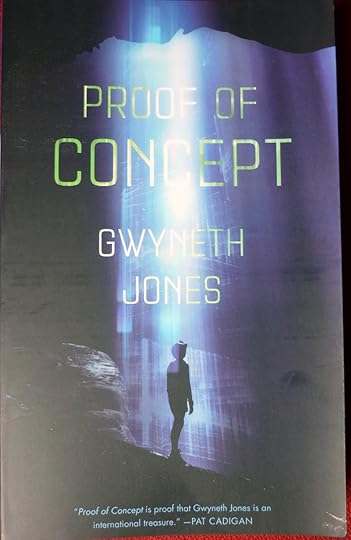
Another unexpected cultural highlight for me, when Proof Of Concept made it into the novella section of Locus Recommends . And a new positive review for the new year, from Christopher East:
The future of Proof of Concept is dark and plausible, but also bafflingly unrecognizable — in the best possible way. It makes for a riveting puzzle of a read, by turns accessible and disorienting as it paints a picture of a world clearly descended from ours, but also shockingly different . . . In the end, the effort pays off in a chilling finale that feels both surprising and inevitable. Its a deft authorial performance that makes for a brisk, thought-provoking read.
I can also draw your attention to an article in New Scientist 28th October 2017, about Mattias Troyer's work on quantum computing, and the exact same problem the Needle team were facing, only on a rather smaller scale: the staggering complexity of quantum entanglement, and the well-nigh magical solutions that are emerging, to the problem of deciphering their structure:
Doing the maths is like searching for a needle in a near-infinite haystack: there just isn't enough time to grind out an exact solution, no matter how large your processor
You could also try this one, from 11th November
https://www.newscientist.com/article/mg23631510-200-consciously-quantum-how-you-make-everything-real/
I always derive my science fiction from real, cutting edge science: hints I've picked up and pursued; articles and books I've read. I'm not a moonlighting science academic. I don't claim to understand all this stuff (though you can bet I'll be pouncing on Philip Ball's new book Beyond Weird , when it comes out next month). I just enjoy it, I find it thrilling.
It's been a long time coming, but right now the weirdness of quantum mechanics, for so long the plaything of quirky science fiction, has found its technology (quantum computing), and is getting serious. It's not just that cat in a box, alive and dead and both until observed (whatever that means). Your own mind, the way you form your ideas and memories, exists in superposition. As does the galaxy we'd like to explore. The implications are beyond bizarre.
Usually, in fact almost always, want I want to convey, in the science of my science fiction, is that we don't know what the rules will be, further down the line. But I do know, from the record of the past, that the most bizarre suggestions of present "science" are the most likely to become recognised as obvious truth.
I wish more women could enjoy hard science fiction (I'm using "hard" in the sense James Blish originally intended, meaning solid, solidly connected to real science, not fantasy). It's a shame many women today, sf fans who are women, seem to police themselves out of this area. That's not half a cockroach in your sandwich. It's a light sword. It's the way you take back control, from the greedy corporations and the ruthless super rich, by gifting yourself with a sense of power, in a world increasingly dominated by the few who regard the rest of us as simply a feedstock.
Movies Sept 17-Jan 18
Mother!
If only Darren Aronofsky had called this movie Monster!, and billed Javier Bardem (who was terrific) as his star; if only Jennifer Lawrence had had the sense to keep her director's stupid Tippi Hedren crush in check, what a great, grotesque, riveting and bludgeoning blockbuster of a horror movie this could have been. Although just as intolerably let me out of here endless.
The White Countess Merchant & Ivory's farewell, and the fall of Shanghai to the Japanese in 1941. A family affair, all the usual suspects. screenplay by Kazuo Ishiguro. Very pretty and touching, though Ralph Fiennes's American accent a bit wobbly.
The Blood Of Women
Set in Kenya, in the territory of the Pokot, where Female Genital Mutilation is defiantly practiced, in its most savage form. It's a good population control tool, since most first babies die stillborn & a very good living for the women who do the cutting. For the men it's easier not to argue with tradition, though sexual relations are a bit of a struggle. At least you can be damn sure your wives will not willingly commit adultery. The girls who suffer are amazing, as are the Kenyan medical staff and reformers, who do their best to repair, and to educate. But the resistance they face is staggering . . . A must see, but not for the faint-hearted.
The Killing Of A Sacred Deer
That's it. I'm never going to follow up a Guardian movies recommendation again. Ever.
I now suspect I only liked the bleak, surreal, Dogtooth because I hadn't a clue what was going on.
The Box Of Delights
For old sake's sake. The "special effects" aren't all that bad, just odd and uneven. The real problem is the story: not a patch on The Midnight Folk, which I am glad never got this treatment.
The Last Jedi
Loved it. I think I liked the glorious red knights fight scene best, but I loved the whole movie to bits. I think even Joanna Russ, the ferocious Star Trek partisan, would have given it a cheer.* The perfect Christmas movie. NB, I have not linked to IMDB in this case, because their Star Wars site is naff
*Okay, maybe not. Star Wars was the spawn of Satan. But she's have loved to see all the women who have invaded that universe.
Published on February 12, 2018 06:21
February 8, 2018
#2 Unexpected Cultural Highlights January 2018
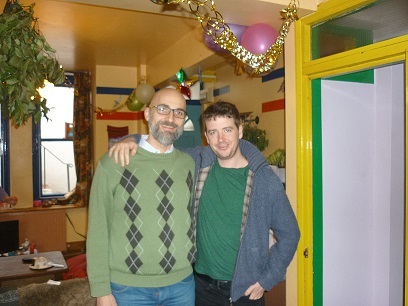 Cultural highlight #1
Cultural highlight #1 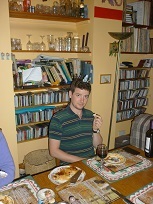 Gabriel's Swiss friend Eric came to stay, fortuitously on Twelfth Night, the feast of the kings, and brought with him from the mainland a kind of flaky, nutty-goo filled tart, a speciality for this occasion, to follow Gwyneth's traditional end of Christmas paella. A small foldable silver cardboard crown came with it, and Gabriel won the prize. So here he is, somewhat disconcerted to find he nearly broke a tooth not on the Baby Jesus, or maybe a Flask of Myrrh, but on a miniature sporting shoe.
Gabriel's Swiss friend Eric came to stay, fortuitously on Twelfth Night, the feast of the kings, and brought with him from the mainland a kind of flaky, nutty-goo filled tart, a speciality for this occasion, to follow Gwyneth's traditional end of Christmas paella. A small foldable silver cardboard crown came with it, and Gabriel won the prize. So here he is, somewhat disconcerted to find he nearly broke a tooth not on the Baby Jesus, or maybe a Flask of Myrrh, but on a miniature sporting shoe. More Unexpected Cultural Highlights
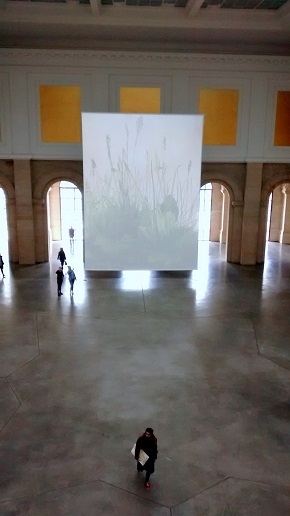
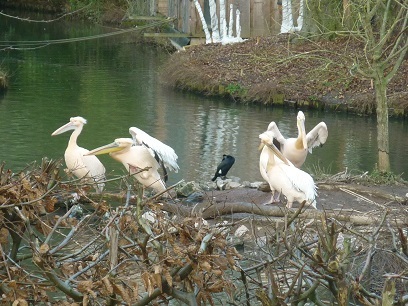 Why did I ever agree to take a trip to Lille in January? Maybe I wasn't paying attention . . . It was all for the sake of French chanteuse Camille, with her floating and flowing veils, her rousing drummers and her men in kilts, featuring on a Jools Holland special. Verdict, three days later: Camille's show, in the vast, elderly and cavernous Sebastopol Theatre, was pretty good (although I think her first appearance, completely shrouded in a burqa and looking like a small, swaying blue mushroom, was a mistake), but Lille upstaged her. The Vauban Citadel (currently home of NATO's Rapid Reaction Force). The miraculously intact Old Town, cranky little streets full of fancy food shops, fashion and chocolate. The cathedral . . . well, it's originally Victorian Gothic, with a very strange 1990s Brutalist front end, so maybe not the cathedral. Jeanne and Marguerite of Flanders, C13 princesses, powerful and progressive. The Musee de Marionettes, (puppet shows still thriving, as popular proletarian entertainment, into the C20) . The staggering civic celebrations, and the siege of 1792, recorded by the Watteau of Lille. The enormous Palais De Beaux Arts, sharing the Place de la Republique with Man on Horse in cocked hat, chiefly notable for losing the Franco-Prussian War; didn't catch his name. The Art-Deco People's Piscine, out in Rubaix, re-purposed for a bountiful collection of modern (C19-C20) textiles, fashion, pots and glass.
Why did I ever agree to take a trip to Lille in January? Maybe I wasn't paying attention . . . It was all for the sake of French chanteuse Camille, with her floating and flowing veils, her rousing drummers and her men in kilts, featuring on a Jools Holland special. Verdict, three days later: Camille's show, in the vast, elderly and cavernous Sebastopol Theatre, was pretty good (although I think her first appearance, completely shrouded in a burqa and looking like a small, swaying blue mushroom, was a mistake), but Lille upstaged her. The Vauban Citadel (currently home of NATO's Rapid Reaction Force). The miraculously intact Old Town, cranky little streets full of fancy food shops, fashion and chocolate. The cathedral . . . well, it's originally Victorian Gothic, with a very strange 1990s Brutalist front end, so maybe not the cathedral. Jeanne and Marguerite of Flanders, C13 princesses, powerful and progressive. The Musee de Marionettes, (puppet shows still thriving, as popular proletarian entertainment, into the C20) . The staggering civic celebrations, and the siege of 1792, recorded by the Watteau of Lille. The enormous Palais De Beaux Arts, sharing the Place de la Republique with Man on Horse in cocked hat, chiefly notable for losing the Franco-Prussian War; didn't catch his name. The Art-Deco People's Piscine, out in Rubaix, re-purposed for a bountiful collection of modern (C19-C20) textiles, fashion, pots and glass.You can see the Vauban fortifications of Lille laid out in full, in the artistically low-lit basement of the Palais de Beaux Arts, which holds relief plans all the strategic centres of France's north east (so popular with invading forces, and so unfortunately lacking in natural barriers). They are entrancing. We walked around it, as we were staying near the beautiful huge park by the student quarter, where it now hides in plain sight, with great naked winter trees towering up in what were the "wet ditch" earthworks, meant to defeat the approach of artillery
 Swags of Eighteenth century draperies,garlands, swords and flags mingle with more recent memorials: a monument for the gallant carrier pigeons of WWI; tablets remembering the fusillées, and those hung in their cells, in the Nazi occupation.
Swags of Eighteenth century draperies,garlands, swords and flags mingle with more recent memorials: a monument for the gallant carrier pigeons of WWI; tablets remembering the fusillées, and those hung in their cells, in the Nazi occupation.Who's "Vauban"? Try starting here, if you're interested.
 I'd heard of him, he's hard to avoid if you study C17 European History, however hazily; as I did, long ago. I'd never heard of Jeanne of Flanders (also known as Jeanne of Constantinople, the portrait's not contemporary of course) or her troublesome sister Marguerite. She ruled Flanders, apparently without male direction, at least some of the time; she fostered the Beguines movement (all-female independent communities, living outside patriarchy on a don't ask don't tell basis); "transformed the position of women in society", and founded the great "Hospital", that still stands, in its seventeenth century incarnation. Efficacy of the regime of cleanliess, good food, good nursing here attested by fine C17 portraits of sick children who recovered. Primitive, male "doctors" and "surgeons" were forbidden entry . . .
I'd heard of him, he's hard to avoid if you study C17 European History, however hazily; as I did, long ago. I'd never heard of Jeanne of Flanders (also known as Jeanne of Constantinople, the portrait's not contemporary of course) or her troublesome sister Marguerite. She ruled Flanders, apparently without male direction, at least some of the time; she fostered the Beguines movement (all-female independent communities, living outside patriarchy on a don't ask don't tell basis); "transformed the position of women in society", and founded the great "Hospital", that still stands, in its seventeenth century incarnation. Efficacy of the regime of cleanliess, good food, good nursing here attested by fine C17 portraits of sick children who recovered. Primitive, male "doctors" and "surgeons" were forbidden entry . . .Something happened to Western Europe, between the splendid C13 and the dreadful, dreadful C14. I must get A Distant Mirror down from the loft and read it again, and see if I can find out why. Was it Climate Change, Corporate Greed, Bombastic Heads Of State? Or all of the above?
The big canvases of the city en fete put Hieronymous Bosch in context, and attest the Spanish influence around here, due to crazy mixed up European History. You want human heads and bodies popping out of a nightmarish giant fish? You want a party being held in a big half-eggshell? A whale as big as house, with many little legs? All kinds of weirdness.
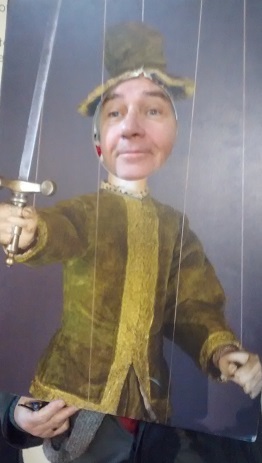
In ways the best thing in the Palais de Beaux Arts was the giant Matt Collishaw "Whispering Weeds" = video-banner of a famous Dürer study, brought to life, hanging in the entrance hall (inspired idea). Plus the two for the price of one Millet exhibition. Jean-Francois Millet and the USA, exploring how his tender, romantic portraits of well-set-up farm workers got into the American psyche, and into the movies; and then there were the pictures. Read all about it here Otherwise, they've got the decorators in, and a few star attractions: Chardin x 1; Goya x1; Bosch x1. . . Plus yards and yards and yards of more or less attractive figurative art stuff designed to cover large expanses of wall, and be used as currency by the rich, exactly like most of "museum quality" contemporary art today; which is sort of reassuring in a way. Millet's last picture, from the year before he died, Les Dénicheurs, is unexpected, a Black Goya: depicting something gruesome from the winters of his childhood. Migrating pigeons roosted thick as autumn leaves in the trees around his family farm. Everyone would go out, blind them with flaming torches and beat them out of the trees, all confused, and kill them in their hundreds. A source of meat, of course. But an image of violence, cruelty and destruction. And fear, too. Poor man.
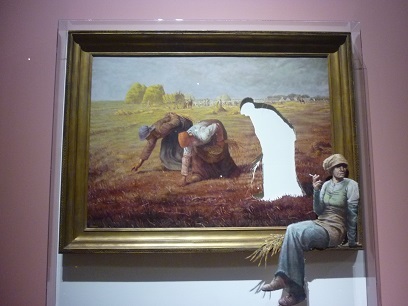
Les Glaneuses by Millet and Banksy
After the Beaux Arts we bought a picnic for the train, which didn't last long, and a big pain sucré to take home, on the way to the station. Peter had bought himself a little savoury tart. My ham and cheese and leeks toasted panini was nicer and there was more of it. After I'd kindly let him have one bite, I had to walk fast and keep my distance. Then we waited, with the Disneyland crowd; then we got on the train in a nice extra carriage Eurostar had found was needed, and then we went home.
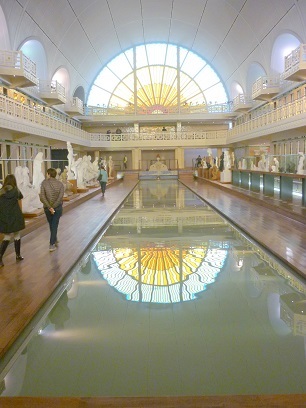
This in La Piscine, the art deco baths turned gallery, a few stops out of the centre on the Metro. I'm afraid you can't see my favourite piece, a male bather, arms akimbo and loins thrust forward, his whole prideful stance exclaiming "These are my pants!" He comes in 3 sizes, as a bonus. How much Lille spoke to me of Manchester! Dirty old down, cleaned up for the post-industrial Age of Leisure
Cultural Highlight #3 was the concert at St Luke's Church (where they have a very nice Steinway) where And took us for Peter's birthday. The main event was Bartok's "Music for Strings, Percussion and Celesta", an amazing piece of music (that I now can't remember a thing about, and not easy to track down on disc; but it is on YouTube)
Cultural Highlight #4 was Songhoy Bluess, at the "O2 Forum" (Was, the Town and Country Club ) in Kentish Town on the 25th. I love The Songhoy Blues. The Toures' voices so warm and sonorous, the glittering guitar work. I wish I could tell you I danced the night away, but I cannot tell a lie. I leaned on a balustrade, and watched from a distance. It's so tiring being retired; I'm not cut out for non-stop treats in January. How could I help getting fascinated, by it all, but I'm going to have to get back to work, or invent some work, before I ruin my health.
We could go to Mali . . . It would be a challenge, but we could get to Bamako without flying. And then by boat to Timbuktu.
Just saying
Donate to Wateraid here (the band's sponsored charity)
& Get your Résistance here.
Je ne marche pas . . .
PS Lille old town was teeming with those gooey nut filled flaky pastry Kings tarts, lingering on.
Published on February 08, 2018 02:10
#2 Cultural Highlights January 2018
 When I was a little girl we used to add lucky items to the Christmas cake mix, such as a silver sixpence (tradition stipulates the pudding, but we didn't make our own pudding). The practice was shelved when my mother realised the two younger children were adding random variants; a bottletop, pieces of eggshell, either through misunderstanding or just for the hell of it. This year
When I was a little girl we used to add lucky items to the Christmas cake mix, such as a silver sixpence (tradition stipulates the pudding, but we didn't make our own pudding). The practice was shelved when my mother realised the two younger children were adding random variants; a bottletop, pieces of eggshell, either through misunderstanding or just for the hell of it. This year  Gabriel's Swiss friend Eric came to stay, fortuitously on Twelfth Night, the feast of the kings, and brought with him from the mainland a kind of flaky, nutty-goo filled tart, a speciality for this occasion, to follow Gwyneth's traditional end of Christmas paella. A small foldable silver cardboard crown came with it, and Gabriel won the prize. So here he is, somewhat disconcerted to find he nearly broke a tooth not on the Baby Jesus, or maybe a Flask of Myrrh, but on a miniature sporting shoe.
Gabriel's Swiss friend Eric came to stay, fortuitously on Twelfth Night, the feast of the kings, and brought with him from the mainland a kind of flaky, nutty-goo filled tart, a speciality for this occasion, to follow Gwyneth's traditional end of Christmas paella. A small foldable silver cardboard crown came with it, and Gabriel won the prize. So here he is, somewhat disconcerted to find he nearly broke a tooth not on the Baby Jesus, or maybe a Flask of Myrrh, but on a miniature sporting shoe. More Unexpected Cultural Highlights

 Why did I ever agree to take a trip to Lille in January? Maybe I wasn't paying attention . . . It was all for the sake of French chanteuse Camille, with her floating and flowing veils, her rousing drummers and her men in kilts, featuring on a Jools Holland special. Verdict, three days later: Camille's show, in the vast, elderly and cavernous Sebastopol Theatre, was pretty good (although I think her first appearance, completely shrouded in a burqa and looking like a small, swaying blue mushroom, was a mistake), but Lille upstaged her.
Why did I ever agree to take a trip to Lille in January? Maybe I wasn't paying attention . . . It was all for the sake of French chanteuse Camille, with her floating and flowing veils, her rousing drummers and her men in kilts, featuring on a Jools Holland special. Verdict, three days later: Camille's show, in the vast, elderly and cavernous Sebastopol Theatre, was pretty good (although I think her first appearance, completely shrouded in a burqa and looking like a small, swaying blue mushroom, was a mistake), but Lille upstaged her. You can see the Vauban fortifications of Lille best in the artistically spooky basement of the Palais de Beaux Arts, which holds fabulous relief plans all the strategic cities of France's north east frontier (so popular with invading forces over the centuries, and so unfortunately lacking in natural barriers). They are entrancing. We saw the Citadel by walking around it, because it stands in the centre of a beautiful huge park, right by the student quarter,
 where we were staying: a huge, mysterious Pentangular complex, currently the home of NATO's Rapid Reaction Force. One moat remains, nicely populated by ducks and moorhens, but the rest of the great "wet ditches" have been drained, making the outer fortifications, funnels now filled by great trees, puzzling. Memorials to the fallen go back a long way, but include the fusillées, and those hung in their cells, when the Nazis were occupying the citadel, plus (just by the great Field of Mars) a fine monument for the gallant carrier pigeons of WWI.
where we were staying: a huge, mysterious Pentangular complex, currently the home of NATO's Rapid Reaction Force. One moat remains, nicely populated by ducks and moorhens, but the rest of the great "wet ditches" have been drained, making the outer fortifications, funnels now filled by great trees, puzzling. Memorials to the fallen go back a long way, but include the fusillées, and those hung in their cells, when the Nazis were occupying the citadel, plus (just by the great Field of Mars) a fine monument for the gallant carrier pigeons of WWI.Who's "Vauban"? Try starting here, if you're interested.
 I'd heard of Vauban, he's hard to avoid if you study C17 European History, however hazily; as I did, long ago. I'd never heard of Jeanne of Flanders (also known as Jeanne of Constantinople, she had a varied career) or her sister Marguerite. She ruled Flanders in her own right, fostered the Beguines movement (all-female independent communities, living outside patriarchy on a don't ask don't tell basis); "transformed the position of women in society", and founded the great "Hospital", that still stands, in its seventeenth century incarnation, in the miraculously intact old town. Efficacy of the nursing here attested by C17 portraits of sick children who recovered. The original regime of cleanliness, good food and good nursing was not ruined by the attentions of primitive, male, "doctors" and "surgeons"; who were forbidden entry . . .
I'd heard of Vauban, he's hard to avoid if you study C17 European History, however hazily; as I did, long ago. I'd never heard of Jeanne of Flanders (also known as Jeanne of Constantinople, she had a varied career) or her sister Marguerite. She ruled Flanders in her own right, fostered the Beguines movement (all-female independent communities, living outside patriarchy on a don't ask don't tell basis); "transformed the position of women in society", and founded the great "Hospital", that still stands, in its seventeenth century incarnation, in the miraculously intact old town. Efficacy of the nursing here attested by C17 portraits of sick children who recovered. The original regime of cleanliness, good food and good nursing was not ruined by the attentions of primitive, male, "doctors" and "surgeons"; who were forbidden entry . . .Something happened to the world around here, between the splendid C13 and the dreadful, dreadful C14. I must get A Distant Mirror down from the loft and read it again, and see if I can understand how everything went so horribly wrong.
Upstairs there's now a picture gallery, with big canvases of the city en Fête that put Hieronymous Bosch in context. You want human heads and bodies popping out of a nightmarish giant fish? You want a party being held in a big half-eggshell? A whale as big as house, with many little legs? All kinds of weirdness, and on a staggering scale.
There's also a Musee des Marionettes, another old school popular entertainment; strangely absent in UK folk history, barring Punch and Judy. I don't like humanoid puppets much. They give me the creeps. But it's interesting, and an eye-opener, like the Bosch-type civic celebrations, to see how much, and how enthusiastically, people used to do for fun, before we had television, never mind the Social Media.

The enormous, gloomy Palais De Beaux Arts is having a makeover. In ways the best thing in it was the giant Matt Collishaw "Whispering Weeds", video-banner of a famous Dürer study, hanging in the atrium (inspired idea, cheesy title.The original "Big tuft of grasses" is far, far better). Mainly it had its star attractions: Chardin x 1; Goya x1; Bosch x1. . . plus a whole lot of more or less attractive stuff designed to cover large expanses of wall, and be used as currency by the rich, exactly like most of "museum quality" contemporary art; which is sort of reassuring in a way. Plus the two for the price of one Millet exhibition. Jean Francois Millet and the USA, exploring how his deeply romantic portraits of farm workers got into the American psyche, and into the movies; and then there were the pictures. Read all about it here
His last picture, painted the year before he died, Les Dénicheurs, is a bit of a Black Goya: depicting something gruesome from the winters of his childhood. Migrating pigeons roosted thick as autumn leaves in the trees around his family farm. Everyone would go out, blind them with flaming torches and beat them out of the trees, all confused, and kill them in their hundreds. A source of meat, of course. But an image of violence, cruelty and destruction. And fear, too. Poor man.

Les Glaneuses by Millet and Banksy
On Day Three we bought brunch and a pain sucré in the old town on the way to the station. Peter had bought himself a little savoury tart. My ham and cheese and leeks toasted panini was nicer and there was more of it. After I'd kindly let him have one bite, I had to walk fast and keep my distance. Then we waited a long time, with the Disneyland crowd; then we got on the train in a nice extra carriage Eurostar had found was needed, and then we went home.
I could write another minor treatise about the concert And took us to on the 20th, for Peter's birthday, featuring Bartok's "Music for Strings, Percussion and Celesta", which is an amazing piece of music. Plus Songhoy Blues, at the "O2 Forum" (Was, the Town and Country Club ) in Kentish Town on the 25th. But I won't. It's so tiring having all these leisure activities, I want to be chained to my desk again, the way I was all last year. . . I'll just say they were great, and you should get the new album: more adventurous and just as compelling as the first. The band was sponsoring Wateraid. Good for them & if you don't donate already, please consider doing so.
Je ne marche pas . . .
Published on February 08, 2018 02:10
Unfinished Business #2
 So, last night they held the UK (ha!) Eurovision shortlist event in Brighton Dome. A modest EUorvision event "flashmob" was organised, and naturally I went down to join in, a short walk in the crispy night (sadly without snow). We waved that blue flag with the yellow stars, big ones & small ones. We herded about, never getting far from the beery warmth of the Mash Tun, and sang Ode To Joy in English, on the other side of the street from the entrance to the great event. (The German words are better, but it's a good rousing tune, at least; although not the composer's best work). Then I went home. I did not forget to thank the police officers. Never forget to thank the police (if they've been well behaved). And here is a special official search string, for you to cut and paste. The official song, in all its stunning banality:
So, last night they held the UK (ha!) Eurovision shortlist event in Brighton Dome. A modest EUorvision event "flashmob" was organised, and naturally I went down to join in, a short walk in the crispy night (sadly without snow). We waved that blue flag with the yellow stars, big ones & small ones. We herded about, never getting far from the beery warmth of the Mash Tun, and sang Ode To Joy in English, on the other side of the street from the entrance to the great event. (The German words are better, but it's a good rousing tune, at least; although not the composer's best work). Then I went home. I did not forget to thank the police officers. Never forget to thank the police (if they've been well behaved). And here is a special official search string, for you to cut and paste. The official song, in all its stunning banality: SuRie sings Storm - Eurovision: You Decide 2018 Artist - YouTube
If you find yourself trapped in a storm of Youtube ads, don't blame me. Brilliant first comment btw
 Now to news about the science I used in Proof Of Concept, which managed to get into the Locus Recommends list, has another nice review: http://www.christopher-east.com/2018/01/15/novella-proof-of-concept-by-gwyneth-jones/ The first item is from a John Paulus article in New Scientist 28th October 2017, and is, from my point of view, about the exact problem facing the Needle team in my story: the staggering complexity that arises as soon as subatomic particles start interacting with each other. Literally impossible to compute, for just a smidgen of entangled particles, with any existing hardware, at present. But one can dream . . . I particularly liked this quote:
Now to news about the science I used in Proof Of Concept, which managed to get into the Locus Recommends list, has another nice review: http://www.christopher-east.com/2018/01/15/novella-proof-of-concept-by-gwyneth-jones/ The first item is from a John Paulus article in New Scientist 28th October 2017, and is, from my point of view, about the exact problem facing the Needle team in my story: the staggering complexity that arises as soon as subatomic particles start interacting with each other. Literally impossible to compute, for just a smidgen of entangled particles, with any existing hardware, at present. But one can dream . . . I particularly liked this quote:... the calculations necessary to precisely predict their behaviour are too much for today's computers. Doing the maths is like searching for a needle in a near-infinite haystack: there just isn't enough time to grind out an exact solution, no matter how large your processor . . .
The solution is about a phenomenal ability to recognise patterns, and approximate from what you know, and suddenly. . . bingo! It's called Quantum Monte Carlo. There's more, if you're interested, but I won't even try to explain any further.
The second article is even more fun. Philip Ball (Reality? It's what you make it; NS 11th November 2017) here cites the Phi mathematical measure of consciousness, invented by Giulio Tononi, that I used in Proof of Concept, to illustrate the way a new theory of reality might be built. (A theory of reality that might, to an sf writer, look ideal for crushing those awful, humonguous spaces between the stars) . . . I was so delighted when I found this article, and you can believe I will be pouncing on Philip Ball's new book Beyond Weird, as soon as it comes out next month.
"Nothing is more astonishing about quantum mechanics than its allowing one to consider seriously that the universe would be nothing without observership"
That second quote is from Niels Bohr, and probably some of you recognised it. But in future, the theory of this barely imaginable "participatory reality" may not be an outlier. It could be going mainstream, right now: a shift as bizarre as getting rid of God's crystal spheres seemed, long ago . . .
It's tough being a female writer of hard science fiction (I use the term "hard" here the way James Blish intended it: not sf about engineering and weaponry, but science fiction that's solidly related to existing or speculative, science and theory). You can get away with it if you're using something womanly, like biology, but even then; not so much. Sexual harassment (it's dominance behaviour, meant to intimidate, and it works) continues to be a problem in sf world, of course, but the policing of the internal boundaries is more insidious, and it's women who do the policing, as much as men . . . Women, stay on your own territory. You must not get all "hard-sciency". Only male writers ever get rewarded for that behaviour (and not too often!) But what am I to do? I'm thrilled by cutting edge science, it sets my imagination working. I wouldn't say I "know" "both Shakespeare and the second law of thermodynamics", (see note) but I'm certainly someone who can appreciate both kinds of knowledge, arts and science. And I wish there were more of us. I think it would be a good thing, all round, and that's one reason (aside from sheer delight) why I will always draw on real, breaking science to weave a story about far off possibilities in my sf. And in my fantasy, too.
Better just thank god for Space Opera, I suppose. Where women are getting away with murder in this respect.
Music Notes & Unexpected Cultural Highlights
(Aside from the Ode To Joy performance with EUrovision and the Dulcetones (a Brighton choir))
Oh, no! Camille was exciting on the Jools Holland show, I loved the drumming, the staging, and the men-in-kilts unisex band. But why did I ever agree to go to Lille in January? Wasn't all that Christmas & New Year visiting and stuff tiring enough?
Verdict: Camille's pretty good, but Lille upstaged her (& I suppose they couldn't have the band marching around among the audience, in the vast, elderly and cavernous Sepastopol Theatre. There's the Vauban Citadel, a huge, mysterious Pentagular complex, where something NATO is hiding (I think?) in the middle of a big beautiful silent, park, full of waterways and the strange remains of giant military earthworks, where the brick facing has fallen away, and great trees are growing in the eighteenth century equivalent of tank-traps. It was still a fortress, though completely useless as a defence against invasion, in 1941, there are memorials to the fallen from that encounter, among others going back to 1708. There's an old town, miraculously still standing, and a seventeenth century "Hospital", originally founded by Jeanne of Flanders (also known as Jeanne of Constantinople; she got about), a powerful C13 princess. Efficacy of the treatment here attested by tributes from former patients (probably helped by the fact that the entirely female staff never allowed a "surgeon" or a "doctor" into the place, and relied on cleanliness, good food and good nursing).
The C13 was a golden age, for women and basically for everyone around here, and including the UK; compared with how it all went horribly wrong in the dreadful C14. I must get A Distant Mirror down from the loft, and remind myself.
The Palais De Beaux Arts is having a makeover, but there was a major Millet exhibition, an eye-opener. Especially on how his deeply romantic portraits of farm workers got into the American psyche, in the nineteenth century and the early decades of the movies. Read all about it here: https://www.francetoday.com/culture/art_and_design/millet-in-the-spotlight-in-lille/
Songhoy Blues, at the "O2 Forum" (Was, the Town and Country Club )
In Kentish Town; and sponsoring Wateraid, good for them, but I would expect no less & if you don't donate already, please consider doing so. They were great. New album is more adventurous and just as compelling as their first, although sadly I was not dancing . . .
Enough. Je ne marche pas . . . I haven't finished my round-up, but it'll wait.
* See C.P.Snow's idea about the "Two Cultures". Old and whiskery, but it still keeps getting updated, so presumably still relevant.
Published on February 08, 2018 02:10
February 7, 2018
Unfinished Business #1
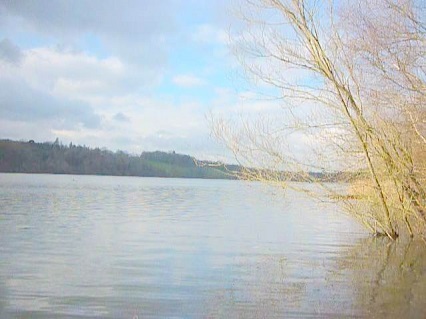 Late with the final ceremony of the Christmas season this year, we took the last 2 slices of cake (very good cake) to Balcombe and Ardingly on the 5th of February. A chilly day, promising snow (of which we saw only a few vagrant dots of white), but none of the hard slabs of puddle ice of last year, and no flocks of fieldfares. The water naked of kayaking classes and the like, was empty of waterfowl, as usual, too; except for the grebe (there's always one grebe) two buzzards mewing, one or two wild ducks, a pair of tufted ducks . . . and far beyond the half-drowned hide, where the road crosses the water, cormorants & coots. We saw plenty of wild ducks* on this walk, some of them feeding on a heap of grain, I am afraid not provided for altruistic reasons. (We could eat a duck!, we thought, simultaneously. I tell you this so you know, and won't go on reading my blog under false pretences.) But the reservoir was brimming, for a change, and looking lovely. The light was beautiful, and as we made our way, in the weather of earliest spring, we saw plenty of other bird life, including a magnificent heron, and once marsh tits which we have never seen before, feeding on something invisible, among the cones of an alder tree. Not shy of humans, as it says in the RSPB guide.
Late with the final ceremony of the Christmas season this year, we took the last 2 slices of cake (very good cake) to Balcombe and Ardingly on the 5th of February. A chilly day, promising snow (of which we saw only a few vagrant dots of white), but none of the hard slabs of puddle ice of last year, and no flocks of fieldfares. The water naked of kayaking classes and the like, was empty of waterfowl, as usual, too; except for the grebe (there's always one grebe) two buzzards mewing, one or two wild ducks, a pair of tufted ducks . . . and far beyond the half-drowned hide, where the road crosses the water, cormorants & coots. We saw plenty of wild ducks* on this walk, some of them feeding on a heap of grain, I am afraid not provided for altruistic reasons. (We could eat a duck!, we thought, simultaneously. I tell you this so you know, and won't go on reading my blog under false pretences.) But the reservoir was brimming, for a change, and looking lovely. The light was beautiful, and as we made our way, in the weather of earliest spring, we saw plenty of other bird life, including a magnificent heron, and once marsh tits which we have never seen before, feeding on something invisible, among the cones of an alder tree. Not shy of humans, as it says in the RSPB guide. It's been (it was) a busy year, full of all kinds of trouble, great souls passing on, and painful losses, including for me personally; and many interruptions that pushed me hard when it came to handing in my Joanna Russ study (which will be with the editors now for quite a while). I have fond memories of recording for The Frankenstein Myth in a tiny East End Studio (not a stone's throw from where Geoffrey Chaucer once lived, rent free, as a rather dodgy wool trade official) . . . but whether anything of my contribution will make it to the finished product, I don't know. I also met Emma Critchley, slipstream media artist, and suggest you take a look: http://www.emmacritchley.com/
& of course there was https://vector-bsfa.com/2017/12/03/organic-systems-environments-bodies-and-cultures-in-science-fiction/. I absolutely loved the art work for this event, and found the idea of hollowing out Canvey Island as a sort of dry-docked GSV alluring (especially if there turned out to be a volcano under it). But I had little to contribute besides facing the audience while grinning like a loon smiling, although apparently I had one startling and novel suggestion:
"Jones evolved the idea that utopia is necessarily a picture of what we lack, not a proposition of what is finally good"
Dear me. What DO they teach them on these sf courses?
On the plus side, no sign of Biedermeier withdrawal and cocooning breaking out. Everyone's still mad as hell, and not going to take it any more. But what aren't we going to take?
Unfortunately, there is no "we"
The one thing we're absolutely sure about is that we're not a united kingdom.
Although cute wildlife tv and an an end to plastic are contenders. . . No more plastic, says the PM, and oh, if she could just wave her lily white hand, for certain the plastic would go! But even that lily wave would be rather too decided.
*originally only the drake was a "mallard". To the Victorians these were just "wild ducks" (Birds Britannica)
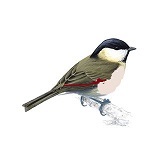
Published on February 07, 2018 02:51
Gwyneth Jones's Blog
- Gwyneth Jones's profile
- 108 followers
Gwyneth Jones isn't a Goodreads Author
(yet),
but they
do have a blog,
so here are some recent posts imported from
their feed.



